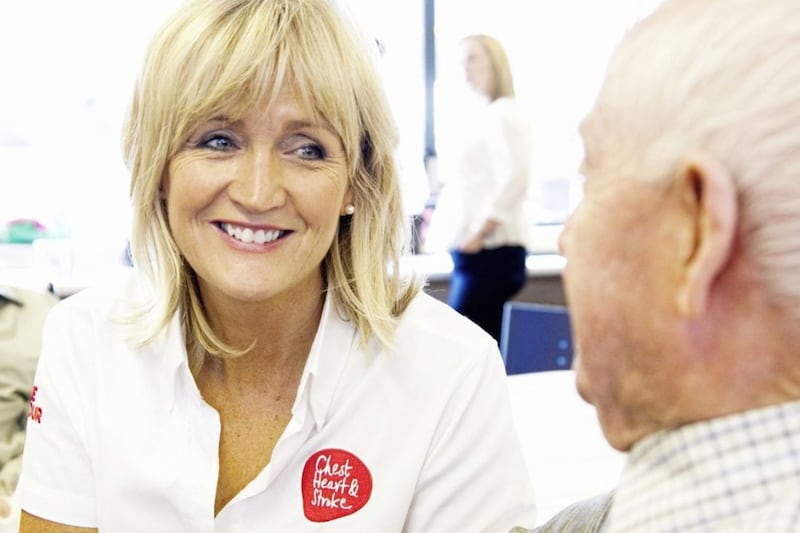A Belfast businesswoman has told of how she is "rebuilding her life" after suffering an unexpected, life-changing stroke, aged just 42.
Jennie Wallace from east Belfast has described how she was living a "pretty normal life" before she took ill in February.
"I didn't really know much about stroke before; I don’t have a history of stroke in my family," she said.
"It was never something that crossed my mind. It was really random and a huge shock.”
Read more:
- Two women who suffered strokes aged just 15 and 30 share their stories to help others
- Charity invests millions into improving health of Northern Ireland
She recalled the day she suffered a stroke, beginning to feel unwell, before vomiting and being unable to open her eyes.
As paramedics arrived, she said "I didn't really have the typical stroke symptoms, but they seemed to realise quickly what was happening.
"I was taken by ambulance to the Ulster Hospital and received the clot busting drug Thrombolysis," she said.
"I was then taken in another ambulance to the Royal Victoria Hospital for a Thrombectomy, which is a procedure to remove blood clots and help restore blood flow to the brain.
“I was in the Royal for around 10 days.
"Then I came home and started rebuilding my life.”
For Ms Wallace, the stroke came completely out of the blue.
“I don’t have diabetes, I’m not overweight, I’m not a smoker," she said.
"I'm not out doing drugs every weekend or doing anything that would put me at risk of this. I have a pretty normal life."

Co-owner of Beyond Skin Clinic in Belfast, she has been unable to return to work and has found the impact of a stroke at such a young age difficult to cope with as an active mum and businesswoman.
“Since the stroke, my left side is still affected," she said.
"I'm still walking with a stick and my mobility isn't fantastic. I can't walk very far but I can manage.
"My left arm is not so great, and my shoulder, if anything, has gotten worse over the past couple of months.
"There are certain movements that are really painful.
"Cognitively, I'm still a bit slow.
"I generally operate at quite a high level with running a business - it involves doing lots of things at once, and I can't do that now. It is very frustrating.”
Ms Wallace said she also now struggles with her mental health as well as not being able to be as active with her daughter, aged seven,
“It’s so hard when she’s asking me, “Mummy can we go for a walk,” and I have to say, “I'm really sorry, I can’t, my legs are too tired”.
I’m just not able. It’s awful, I hate it. The fatigue is a killer.
"There are things I think I can do, but then I'll be knocked out for three days in bed.”
Ms Wallace is sharing her story to highlight World Stroke Day on Sunday and to promote the support she received from the Northern Ireland Chest Heart & Stroke (NICHS), in particular its post-rehab exercise programme.
“Young stroke is on the rise and that’s part of why I want to share my story, to show on social media and in the news that yes, young stroke survivors exist," she added.
“Having a stroke is a life-changing experience.
"You have to adjust to a different way of life. But recovery keeps going.
"Just because my shoulder isn't great now, it doesn't mean it will always be like this.
"I've come quite a long way in six months, so who knows where I’ll be six months from now.”

Ursula Ferguson from the NICHS said: "People may be surprised to learn that 50% of stroke survivors in Northern Ireland are under 75.
“Over 40,000 people within our local communities are living with a stroke or TIA, also known as a ‘mini stroke’.
"As well as the negative impact on physical wellbeing, stroke can reduce independence, confidence and happiness.
"Stroke can also affect relationships, take away jobs and careers and render some families isolated within their own homes - but NICHS is here to help with expert care and support.”






